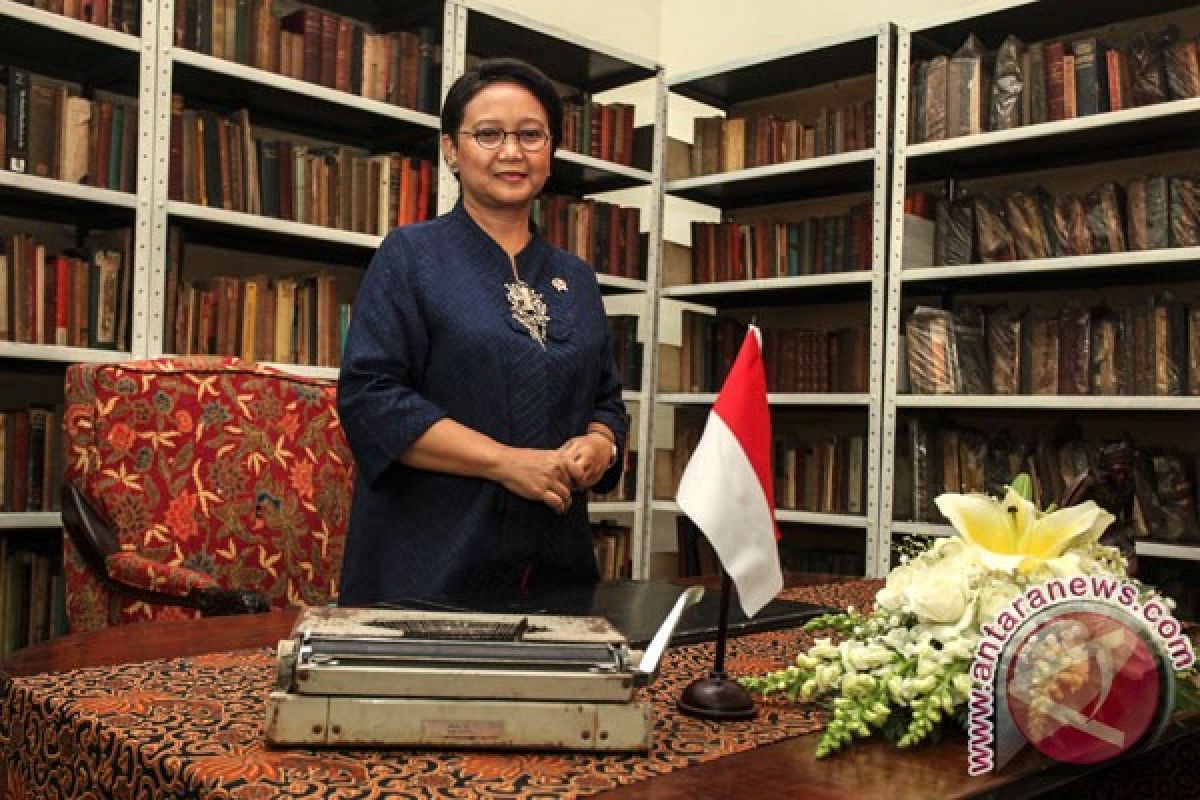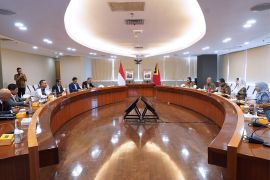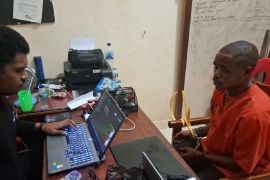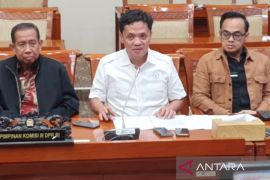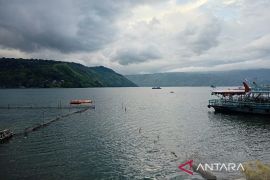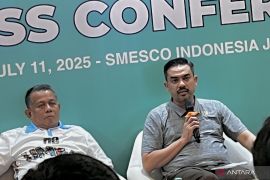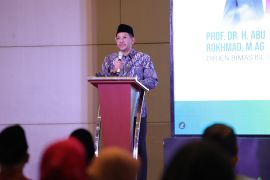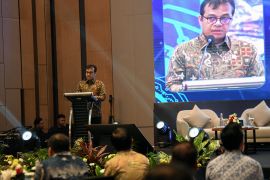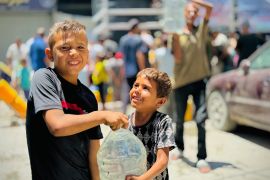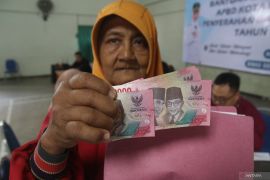"Our diplomacy works very well at both regional and international levels, and we would like to contribute more to the world`s efforts to achieve welfare."Jakarta (ANTARA News) - When the founding fathers of the Republic of Indonesia declared the countrys independence from Dutch colonial masters 71 years ago, they worked quickly to establish an administrative structure to manage the newborn state.
Among the thirteen ministries created by President Soekarno after the proclamation of the independence, the Ministry of Foreign Affairs (MOFA) was put on top of the structure, and according to Hikmahanto Juwana, an international affairs professor at the University of Indonesia, functioned like the Secretary of the State in the US administration.
After he was appointed as the first minister of foreign affairs on August 17, 1945, Achmad Soebardjo hired ten select staff members to help him with the diplomatic and other ministerial work, and turned his private residence into the first office of the Foreign Affairs Ministry on August 19.
Laksmi Achmad Soebardjo, one of the daughters of late Mr. Soebardjo, said she still remembered how her father brought ten people to work with him at their house until late night, trying to send as many diplomatic notes to other nations seeking their recognition of the independence of Indonesia.
"Our father had to give so many interviews to local and international journalists, too," Laksmi stated.
Speaking on behalf of the Soebardjo family during an event to commemorate the 71th anniversary of the MOFA at Soebardjos residence in Cikini, Central Jakarta, Laksmi exclaimed that if the walls of the house could speak, they might tell the whole story of Indonesian diplomacy in the early ages of the Republic.
Now, after commemorating its 71th anniversary on August 19, 2016, the MOFA has been leading the Indonesian diplomacy through its ups and downs in maintaining bilateral, regional and international relations.
A representative of the Australian Lowy Institute Analysis for International Policy, Aaron L. Connelly, said Indonesia faces some major challenges related to regional and international issues, including how to run the country as a "global maritime axis" by elevating the Indian Ocean Rim Association (IORA) annual meeting to a leaders summit. Currently, Indonesia is the chair of the forum for 2015-2017.
Connelly noted that the IORA could be an "APEC for the Indian Ocean," but there are obstacles in turning it into a useful organization, particularly its checkered membership around the region, and the lack of a pressing mission.
According to the Lowy Institutes East Asian expert, in the South China Sea dispute, Indonesia has sought to facilitate a dialogue between the claimant states---China, Taiwan, Vietnam, the Philippines, Brunei and Malaysia.
Jakarta's role in the South China Sea is often cited as an example of Indonesian leadership in regional affairs. Yet, Indonesia must manage its own tensions with China regarding its behavior in the South China Sea in the waters off the Natuna Islands, which are part of Indonesia's Riau Islands province, and form the southern limit of the South China Sea.
Meanwhile, the Association of South East Asian Nations (ASEANs) expert from Paramadina University, Dinna Wisnu, said as the "natural leader" of ASEAN, Indonesia should push the negotiation on Code of Conduct (COC) in the South China Sea, in a bid to preserve the peace and stability in the region.
As a non-claimant state of the South China Sea, Wisnu said Indonesia still has a large responsibility to encourage ASEAN countries, particularly the claimant states, namely Vietnam, Philippines, Brunei, and Malaysia, to stick to the principles of ASEAN unity and centrality.
"People keep saying that COC will be the answer to overcome the South China dispute, but the process behind it seems to have taken too long after the signing of the DOC in 2002," she noted.
The Declaration on the Conduct of Parties in the South China Sea (DOC) was a consolation and came in place of the code of conduct, where ASEAN and China engaged in many rounds of difficult negotiations.
At the 8th ASEAN Summit convened in Phnom Penh, Cambodia on November 4, 2002, Mr. Wang Yi, then Vice Minister of Foreign Affairs, and Foreign Ministers of the ten ASEAN Member States jointly signed the DOC.
Apart from the experts points of view, current Foreign Affairs Minister Retno Marsudi said Indonesia is constantly striving to be a country that is increasingly involved in peace and welfare efforts at both regional and international levels.
The statement was made in connection with the ministrys aspirations regarding Indonesias diplomacy as it commemorates its 71st Independence Day anniversary at the Ministrys offices in Jakarta, on August 19.
"Our diplomacy works very well at both regional and international levels, and we would like to contribute more to the worlds efforts to achieve welfare," she emphasized.
Particularly in case of the dispute about the South China Sea, Minister Marsudi emphasized that Indonesia had called on all parties to respect international law, including UNCLOS 1982.
Moreover, Indonesia reminded the ASEAN member countries the importance of ASEAN's unity and centrality as the base of the associations relevance and resilience towards regional and global issues.
"ASEAN is our home, a home that we should take care of as we are facing more dynamic regional and international challenges. So each ASEAN nation should be able to preserve peace and stability in the region because they cannot be taken for granted," Minister Marsudi said.
In other areas, the minister further explained that Indonesia, as a member of the G20 group, with relatively better economic conditions as compared to other countries, harbors a strong willingness to become more involved in these efforts.
Currently, Indonesia is ranked among the UNs list of top 10 countries that have sent peacekeepers. It is also recorded to have played an active role in the UNs welfare programs, including in the post-2015 world development program and the worlds education fund.
Meanwhile, the minister also highlighted the challenges the country is facing with regard to foreign diplomacy, including the dynamic global growth, which necessitates the adoption of flexible policies while simultaneously staying within the boundaries of the countrys foreign political corridor that is active and free.
"This challenge is faced not only by Indonesia but also by all countries in the world in the face of the ever-changing era. From time to time, priorities will shift but while speaking about the foreign political corridor, it stays the same, which is active and free," she remarked.
On the same occasion, Minister Marsudi also re-addressed the four priorities outlined as part of Indonesias diplomacy that comprise protecting the nations integrity, safeguarding Indonesian nationals and legal entities overseas, conducting economic diplomacy and advancing the countrys role at regional and international levels.
Indonesia's role in addressing the regional and global issues would be tested during the 28th and 29th ASEAN Summits and related summits in Vientiane, Laos, on September 6-8, and then during the 71th United Nations General Assembly (UNGA) in New York, where the opening session will start on September 13. (*)
Reporter: Azizah Fitriyanti
Editor: Fardah Assegaf
Copyright © ANTARA 2016
